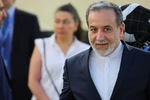
The general election campaign in Bosnia amplified the negative trends and defined the overall political dynamics in Bosnia and Herzegovina, Bosnia’s High Representative Valentin Inzko said in his 20th regular report to the UN Security Council on the situation in the country.
The report covers the period from April 22 through October 15, 2018, and said that the atmosphere of the election campaign was reflected in continued stagnation in the pace of reforms at all levels of government and particularly in a new level of divisive and provocative rhetoric from some senior political figures.
Inzko further states that the country’s aspirations for European Union (EU) integration remained firmly on the agenda despite the difficult political environment.
“A rare piece of good news in the rule of law sector came in September, when after several months of disagreement, Bosnia’s Parliamentary Assembly, with the assistance of the wider International Community, finally adopted long-outstanding amendments to the State Criminal Procedure Code (CPC) in a compromise agreement acceptable to nearly all political parties,” he said.
The High Representative who oversees the civilian implementation of the Dayton Peace Agreement which ended the war in Bosnia (1992-1995) mentioned that the Republika Srpska (RS) entity government repealed the 2004 RS Government Report on Srebrenica, which had officially acknowledged the involvement of RS military and police forces in the July 1995 events in Srebrenica.
“During the reporting period, statements continued challenging the sovereignty and territorial integrity of Bosnia, with RS President Milorad Dodik again being the most frequent exponent of such proclamations,” Inzko told the Security Council.
He also said that some senior political figures continued to deny and belittle the genocide committed in Srebrenica in 1995, which was confirmed by two international tribunals, and to insult the victims with “outrageous conspiracy theories.”
The government of the Federation of Bosnia and Herzegovina (FBiH) entity, he added, worked consistently throughout the reporting period, holding 19 regular and nine extraordinary sessions. They adopted 26 new laws and nine sets of amendments to existing legislation.
“With continued political disputes and pressure from frequently protesting war veterans, the Federation Parliament delivered only one new law and four sets of amendments to existing legislation.”
According to the High Representative, the low legislative output reflected the stagnation in the FBiH Parliament.
Speaking about the Election Law, Inzko said the responsible political parties could not reach an agreement to enact amendments to the State Election Law that would enable the holding of local elections in the City of Mostar, where there have been no local elections since 2008.
“I continue to urge the parties to find a compromise to enable the citizens of Mostar to enjoy the same democratic right to elect their local leaders as the citizens in the rest of the country enjoy,” inzko noted.
In 2010, the Constitutional Court of Bosnia and Herzegovina issued a decision ordering that Bosnia's Election Law and the Mostar City Statute must be amended, because the Statute violates the basic democratic principle of 'one man – one vote.'
Kakvo je tvoje mišljenje o ovome?
Učestvuj u diskusiji ili pročitaj komentare





 Srbija
Srbija
 Hrvatska
Hrvatska
 Slovenija
Slovenija



























































